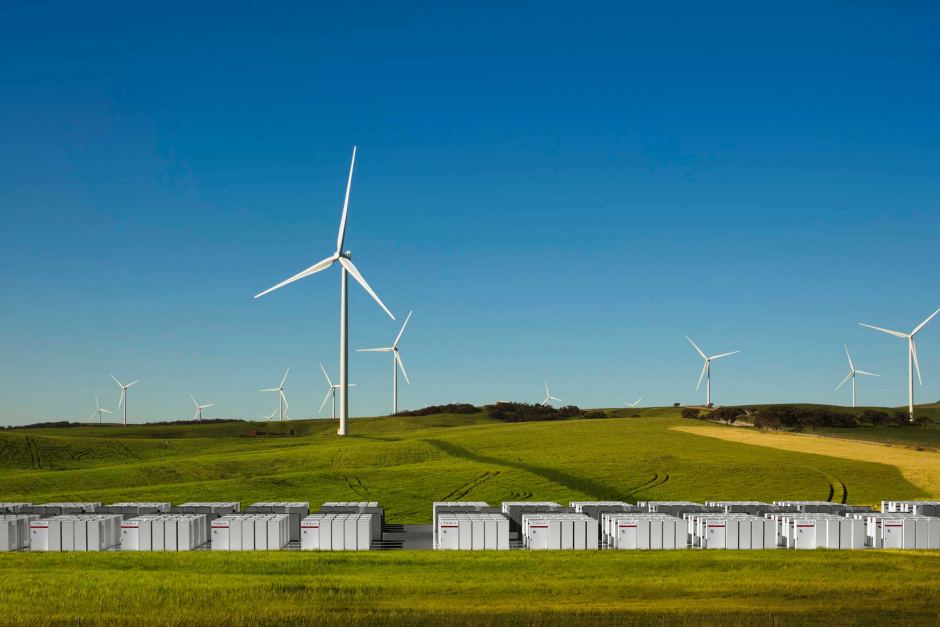Energy, Green, State Government - Tesla, Neoen To Build Big Battery In South Australia
Tesla will build the world's biggest lithium ion battery in South Australia in partnership with Neoen to store power generated from the French energy utility's wind power farm that's currently under construction.
In keeping with his habit of making big pronouncements, Tesla boss Elon Musk said his company will deliver the groundbreaking, $50 Million energy storage unit in 100 days, or it's free. But once it's connected to Neoen's Hornsdale Wind Farm near Jamestown, he's convinced it will bring down energy prices and stabilize the grid.

"You can essentially charge up the battery packs when you have excess power when the cost of production is very low.. and then discharge it when the cost of power production is high, and this effectively lowers the average cost to the end customer," Mr. Musk told reporters at a news conference at the Adelaide Oval. "It's a fundamental efficiency improvement for the grid," he added.
SA Premier Jay Weatherill explained the project is a key part of the state's $500 Million energy plan that came out of last year's blackouts.
"I'm thrilled with the selection of Neoen and Tesla, whose experience and world leadership in energy security and renewables will help South Australia take charge of its energy future," Mr. Weatherill said. "Battery storage is the future of our national energy market and the eyes of the world will be following our leadership in this space. This historic agreement does more than bring a sustainable energy giant in Tesla to South Australia, it will also have some significant economic spin-offs."
The Climate Council’s Tim Flannery praised the development, and encouraged the Federal Government to push for similar projects around the nation.
"South Australia joins the likes of California as a world leader in demonstrating how renewable energy and storage technologies can power our economy cheaply and cleanly," Mr. Flannery said in an interview with The Guardian. "Renewables like wind and solar are now the cheapest power source available. We need to roll out this technology swiftly in a bid to tackle climate change."







 Create PDF
Create PDF Print
Print Email to friend
Email to friend